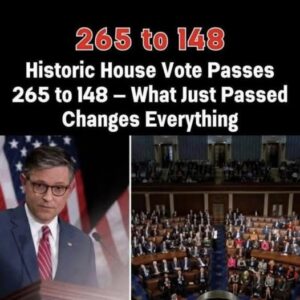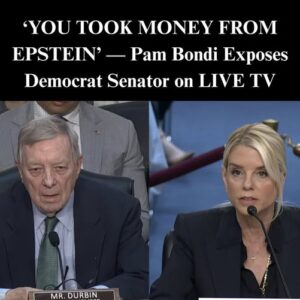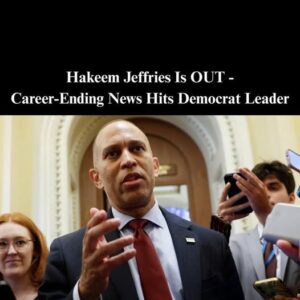In a dramatic turn of irony, James Comey, former FBI director and one of the country’s most recognized critics of former President Donald Trump, now finds himself confronting federal charges for conduct strikingly similar to what he once prosecuted in one of the nation’s most high-profile criminal cases.
Two decades ago, in 2003, Comey, then serving as U.S. Attorney for the Southern District of New York, famously indicted Martha Stewart. The domestic lifestyle icon and entrepreneur was accused not of committing insider trading itself, but of lying to federal investigators during the probe of her sale of ImClone Systems stock. Comey, brimming with a characteristic air of self-righteousness, publicly declared the prosecution a matter of principle. “That is conduct that will not be tolerated,” he told reporters at the time, framing the case as a lesson about accountability and truthfulness under the law.
Fast forward to 2025, and Comey himself stands accused in federal court of making false statements and obstructing a congressional proceeding. The charges are rooted in his September 2020 testimony before the Senate Judiciary Committee regarding leaks from the FBI to news outlets during the Crossfire Hurricane investigation, which scrutinized alleged ties between the Trump presidential campaign and Russian operatives.
According to the indictment, Comey testified falsely when he claimed that he had not authorized anyone at the FBI to serve as an anonymous source in news reports. “That statement was false, because, as JAMES B. COMEY JR. then and there knew, he in fact had authorized PERSON 3 to serve as an anonymous source in news reports regarding an FBI investigation,” the document reads. The second count emphasizes the gravity of his alleged misconduct, asserting that Comey “did corruptly endeavor to influence, obstruct and impede the due and proper exercise of the power of inquiry under which an investigation was being had before the Senate Judiciary Committee by making false and misleading statements before that committee.”
The parallels to the Stewart case are striking. Stewart’s prosecution involved so-called “process crimes” – lying to investigators during the course of an otherwise civil insider-trading inquiry. She later criticized the prosecution as unnecessarily punitive, describing the ordeal in the Netflix documentary Martha as a humiliating experience that transformed her into a “trophy” for federal prosecutors. Stewart settled with the Securities and Exchange Commission on the underlying stock-trading allegations, yet it was her statements to investigators, not the trades themselves, that landed her in jail.
Of course, there are differences. Stewart’s motivations appear tied to personal financial gain – a modest $45,000 stock transaction that remains baffling given her billionaire status. Comey, on the other hand, allegedly acted in ways that struck at the heart of the American democratic system. His alleged misconduct, according to critics, involved attempts to interfere with the 2016 presidential election, undermine a sitting administration, and manipulate public perception through media leaks. The vehicle for this, Crossfire Hurricane, began with opposition research funded by Hillary Clinton’s campaign and escalated into an expansive, politically fraught investigation that cast a shadow over Donald Trump’s presidency until Special Counsel Robert Mueller’s report was published.
The investigation, critics argue, was built on a foundation of misrepresentation: false claims to FISA courts, misleading intelligence from former British agent Christopher Steele, and partisan exaggerations from Democratic politicians, including now-Senator Adam Schiff. For many observers, the scandal highlighted an FBI leadership willing to exploit its authority to shape political outcomes. Now, the former director himself may face consequences for his role in disseminating misleading information and fostering a culture within the bureau that blurred the line between law enforcement and political partisanship.
Comey’s own words from the Stewart case resonate with an almost prophetic irony today. When announcing the Stewart indictment, he declared, “Martha Stewart is being prosecuted not because of who she is, but what she did.” Now, Comey is being prosecuted both for what he allegedly did and the legacy he carries. For millions of Americans, he is a symbol of the erosion of trust in the FBI, an institution once revered for impartiality and integrity. The charges allege that he lied to Congress and enabled partisan narratives to infiltrate public discourse, actions that contrast starkly with the principles he once enforced.
Whether the case will succeed in court remains an open question. Legal analysts, including former federal prosecutor Andrew McCarthy, have expressed skepticism about the indictment, calling it “factually and legally flawed.” From a purely technical perspective, Comey may indeed have grounds to contest the charges effectively. Yet, the significance of the indictment extends beyond the courtroom. It represents a moment of public reckoning, an opportunity to hold a high-profile figure accountable for actions that, many argue, undermined the democratic process and the credibility of a critical federal institution.
Even if Comey ultimately avoids conviction, the episode underscores the broader historical narrative of accountability and the consequences of misusing positions of authority. For years, the Crossfire Hurricane investigation and related actions cast a long shadow over American politics, with misleading statements, selective leaks, and partisan decision-making shaping the national discourse. Retired Gen. Michael Flynn and other figures caught in the investigation’s crosshairs have long maintained that Comey and his team orchestrated a deliberate campaign to discredit political opponents, a charge that has fueled enduring public skepticism about the FBI’s impartiality.
For those following the twists and turns of the Russia-collusion saga, Comey’s indictment is more than legal drama; it is a symbolic moment of accountability. Justice, in this instance, is not solely about the technicalities of law but about restoring public faith in institutions that are meant to operate above politics. The indictment reminds the nation that even its most prominent enforcers of law are subject to scrutiny and that actions once lauded can later be judged in the harsh light of accountability.
Comey will, of course, benefit from the presumption of innocence and the protections afforded by due process. Should the case fail to result in a conviction, that outcome will reflect the complexities of federal law and prosecutorial discretion. Yet, the indictment itself serves as a stark reminder that no individual, regardless of stature, is beyond the reach of the legal system.
In the end, the story is a full-circle moment. The same man who once declared that lying “is conduct that will not be tolerated” now faces scrutiny for allegedly engaging in comparable behavior. For those who remember Stewart’s case and watched Comey’s rise to prominence, the symmetry is almost poetic. And for those who value the integrity of law enforcement and the rule of law, it is a sobering reminder that accountability must extend to the highest offices – even to the person who once symbolized the nation’s commitment to prosecutorial rigor.
For Martha Stewart, who endured her own public humiliation under Comey’s authority, this turn of events is a bittersweet vindication. For the American public, it is a moment to reflect on the fragility of institutional trust, the perils of politicized law enforcement, and the enduring principle that no one is above the law.
James Comey may yet defend himself successfully in court, but the indictment ensures that his legacy will forever be inseparably linked to the controversies, missteps, and alleged misconduct that defined one of the most turbulent chapters in recent American political history.





